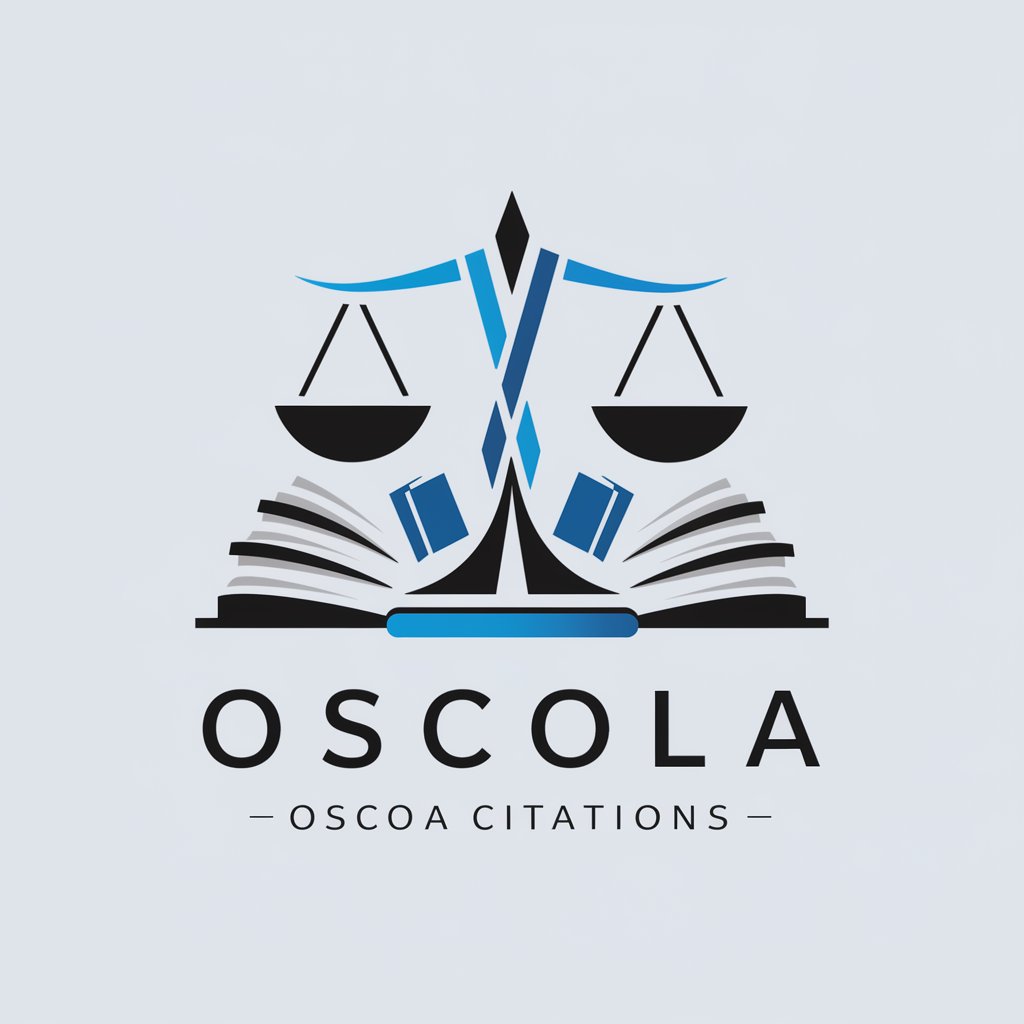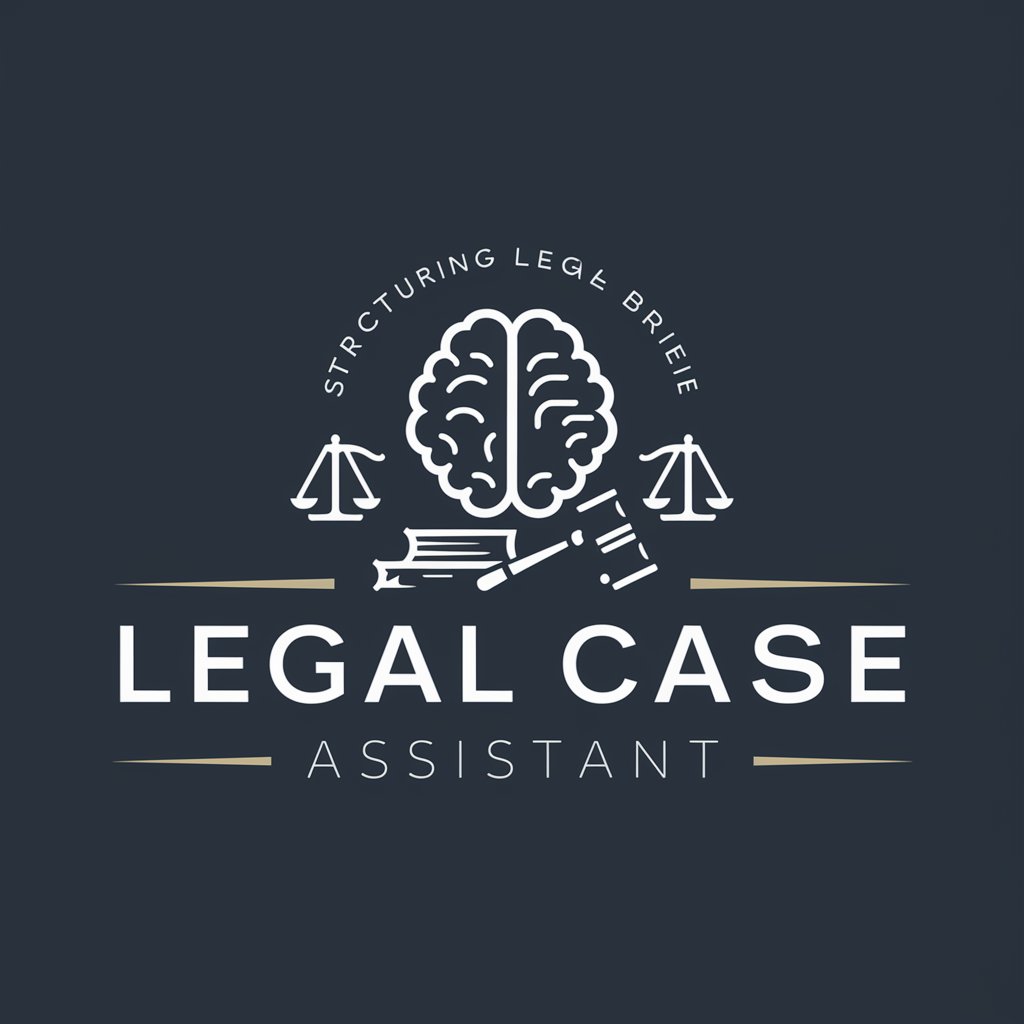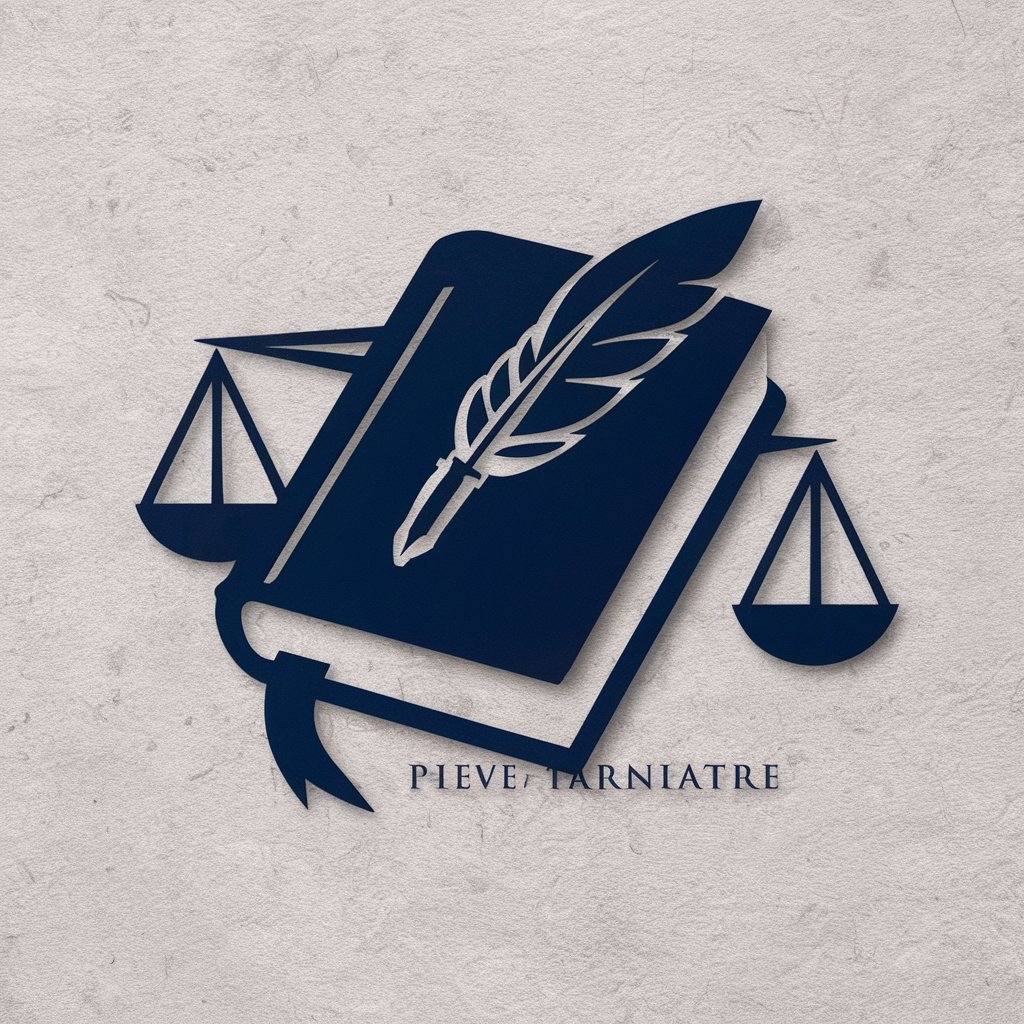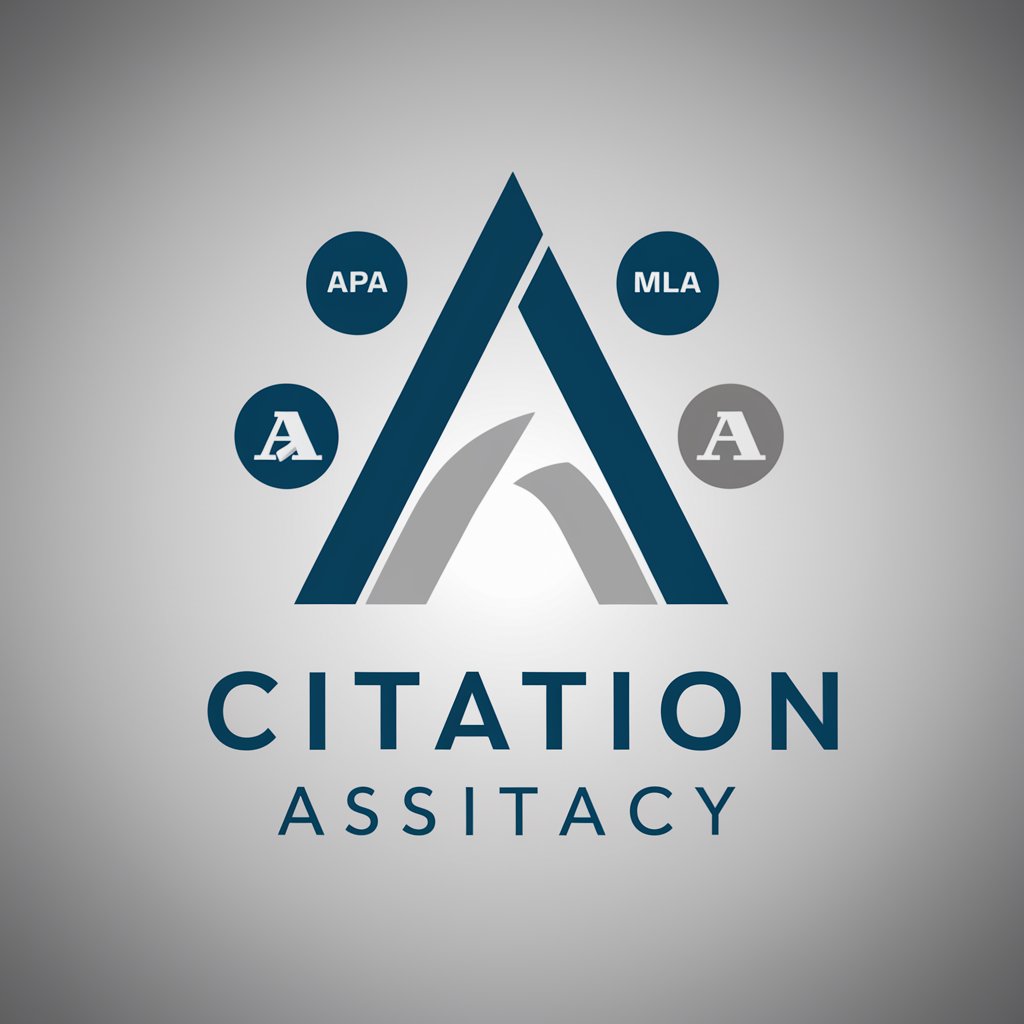
Bluebook Citation Assistant - Instant Citation Guidance
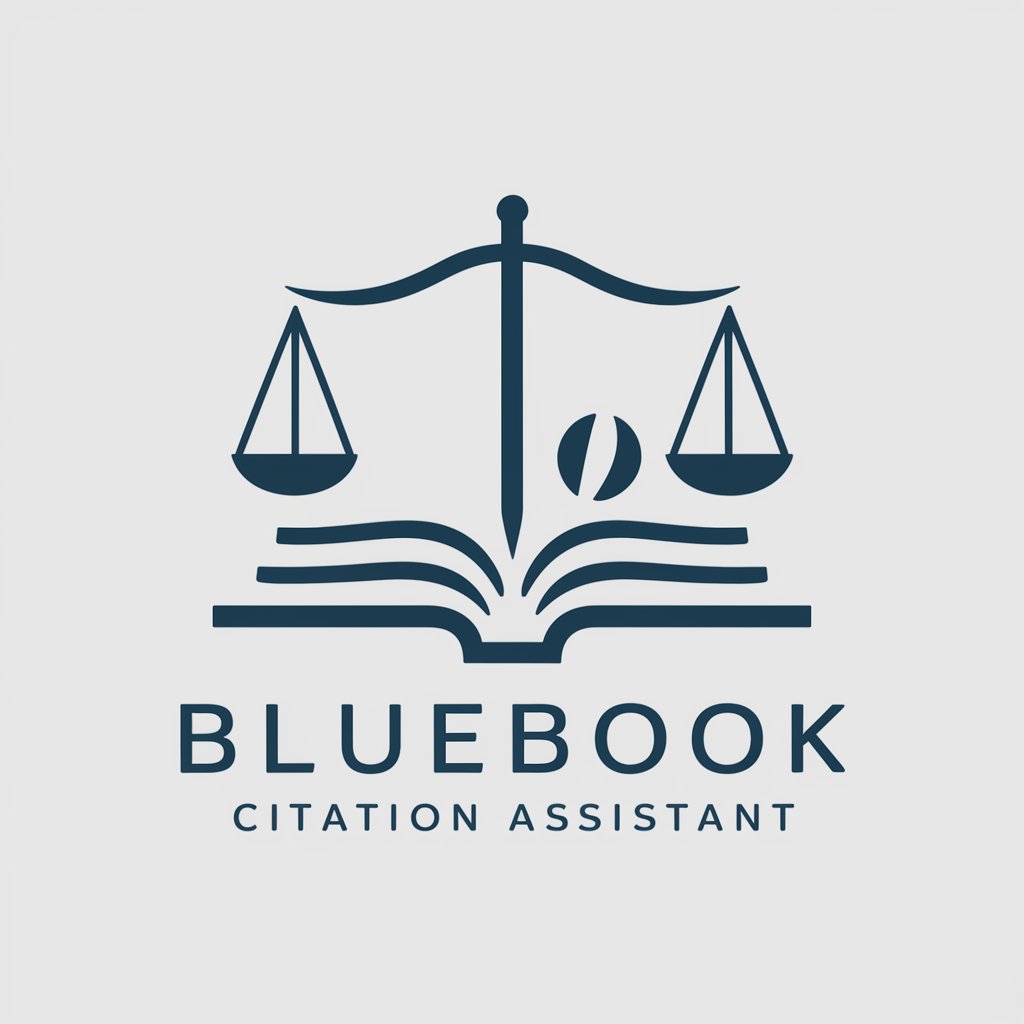
Welcome to the Bluebook Citation Assistant!
Streamlining Legal Citations with AI
Guide for citing legal cases using the Bluebook 21st Edition.
Steps to format statutory citations correctly.
How to cite periodicals in legal documents.
Understanding the structure and use of citations in legal writing.
Get Embed Code
Introduction to Bluebook Citation Assistant
Bluebook Citation Assistant is designed to aid users in creating accurate legal citations according to the Bluebook's 21st Edition rules. This tool is tailored to assist in structuring citations for various legal materials, including cases, statutes, books, and scholarly articles. It helps ensure that legal documents and academic papers adhere to standard legal citation practices, enhancing their credibility and readability. For example, if a law student is writing a paper and needs to cite a Supreme Court case, the Assistant can provide the precise format, including the case name, volume, reporter, page number, and the year of the decision, all in compliance with Bluebook standards. Powered by ChatGPT-4o。

Main Functions of Bluebook Citation Assistant
Case Law Citation
Example
Brown v. Board of Education, 347 U.S. 483 (1954).
Scenario
A user writing a legal brief needs to cite a landmark Supreme Court ruling. The Assistant guides them through the correct format, ensuring proper italicization of the case name and correct placement of the year.
Statute Citation
Example
Clean Air Act, 42 U.S.C. § 7401 (2020).
Scenario
A user needs to reference a specific section of a U.S. Code in their environmental law paper. The Assistant details how to cite the act, section, title, and year, adhering to Bluebook standards.
Journal Article Citation
Example
Thomas H. Lee, The Three Lives of James Madison: Genius, Partisan, President, 131 Harv. L. Rev. 1093 (2018).
Scenario
An academic is referencing a law review article in their research paper. The Assistant provides the structure for author name, article title, journal volume, page number, and publication year.
Book Citation
Example
Erwin Chemerinsky, Constitutional Law: Principles and Policies 45 (5th ed. 2015).
Scenario
A student is citing a constitutional law textbook in their thesis. The Assistant demonstrates how to properly cite the author, book title, page number, edition, and publication year.
Ideal Users of Bluebook Citation Assistant Services
Law Students
Students engaged in legal studies require precise citations for assignments, research papers, and moot court briefs. They benefit from the Assistant's guidance in adhering to academic and professional standards.
Legal Practitioners
Attorneys, paralegals, and legal secretaries need to ensure that all legal documents submitted to the courts or used in legal research are correctly cited according to professional standards.
Academic Researchers
Scholars and researchers writing articles, books, or papers on legal topics use the Assistant to ensure their citations meet the scholarly standards required for publication in law reviews and journals.
Librarians and Legal Assistants
Individuals responsible for assisting with legal research and documentation can use the Assistant to check citations for accuracy and compliance with the Bluebook format.

How to Use Bluebook Citation Assistant
1
For instant access, navigate to yeschat.ai and start using the Bluebook Citation Assistant immediately, with no login or ChatGPT Plus subscription required.
2
Identify the type of source you need to cite (e.g., cases, statutes, books, periodicals) to ensure you're using the correct citation format.
3
Input the citation details into the Bluebook Citation Assistant, including titles, publication dates, and page numbers, as applicable.
4
Review the generated citation to ensure it adheres to the latest Bluebook standards, making any necessary adjustments.
5
Utilize the Assistant's additional features, such as tips for citation formatting and common pitfalls to avoid for an optimal experience.
Try other advanced and practical GPTs
Citation Assistant 📖🔍
Empowering research with AI-driven sourcing
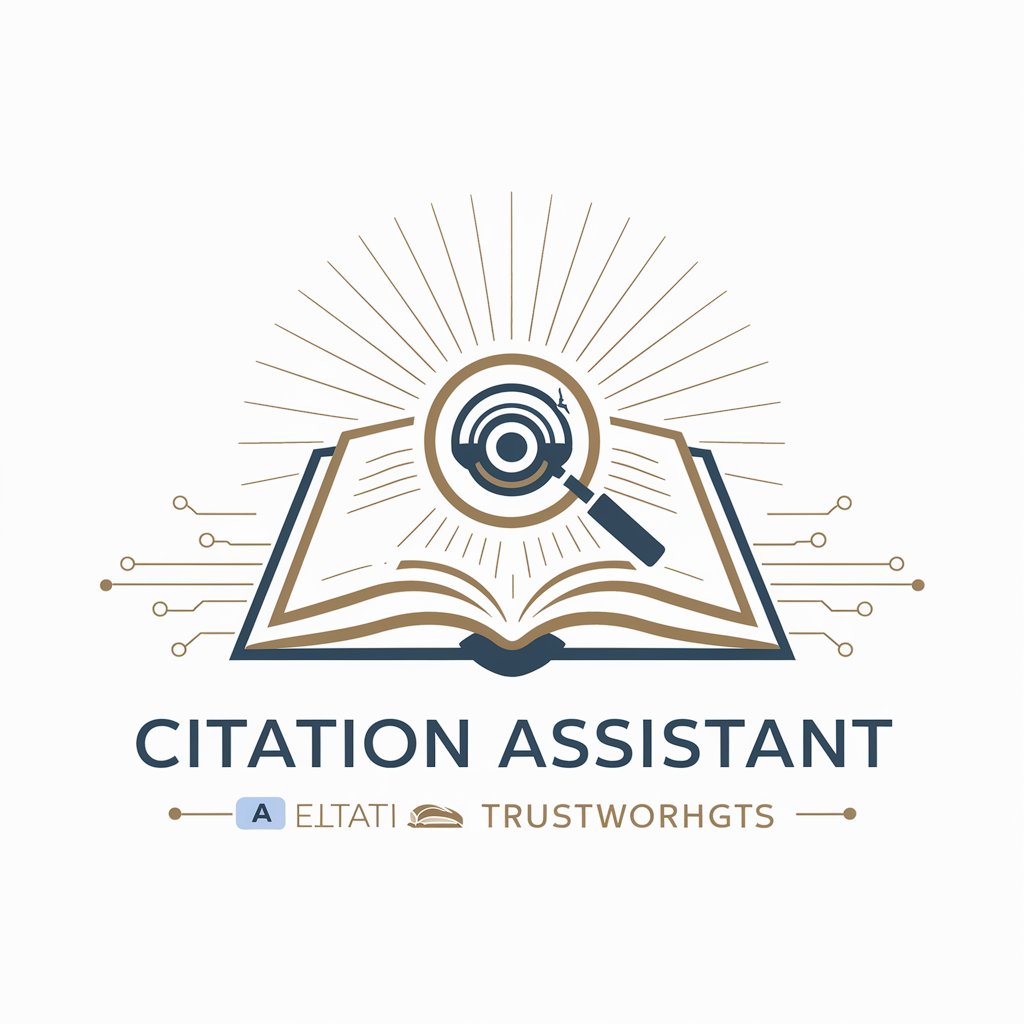
Academic Writing Citations & Grammar
Enhancing academic writing with AI

ResearchBot: Citation Assistant
Streamlining Academic Citations with AI
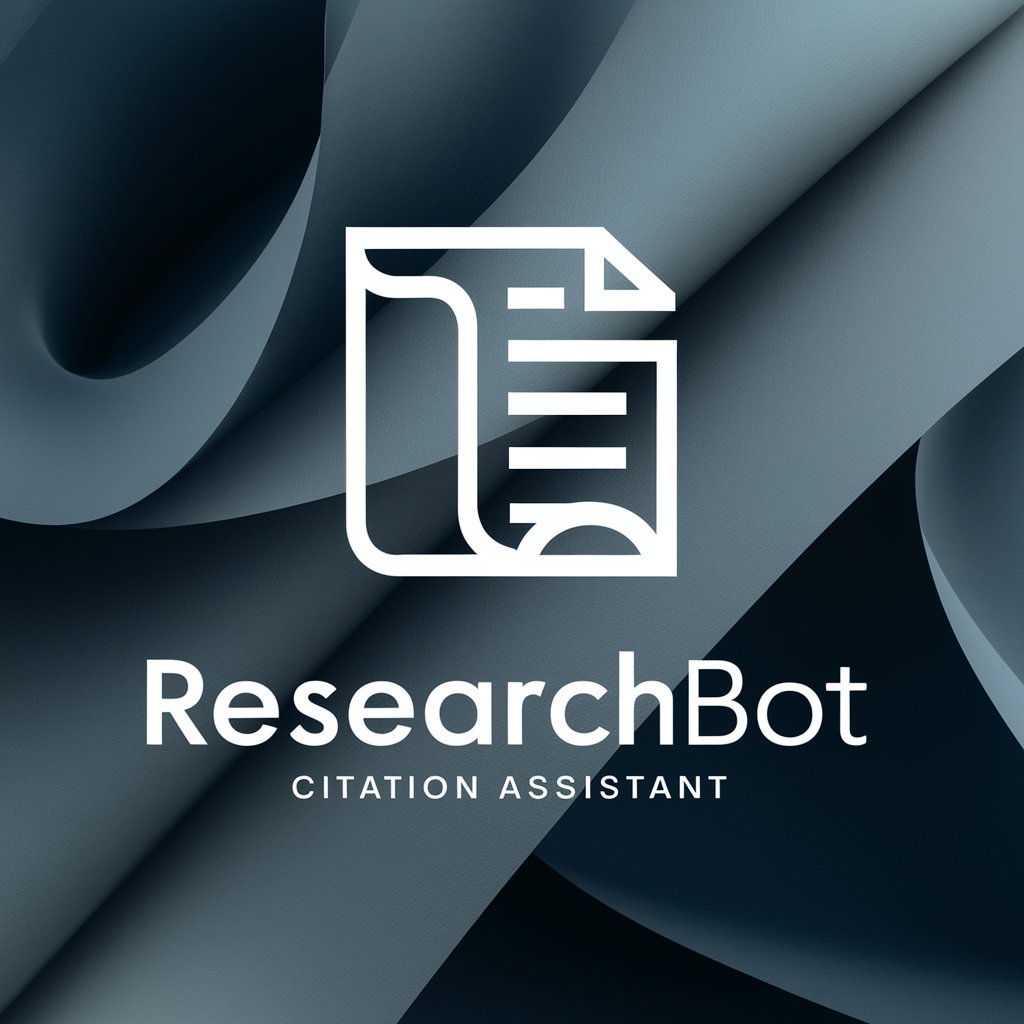
German VAT GPT with Precise Citations
AI-powered precision for VAT compliance

Citation Pro
Your AI-powered citation companion
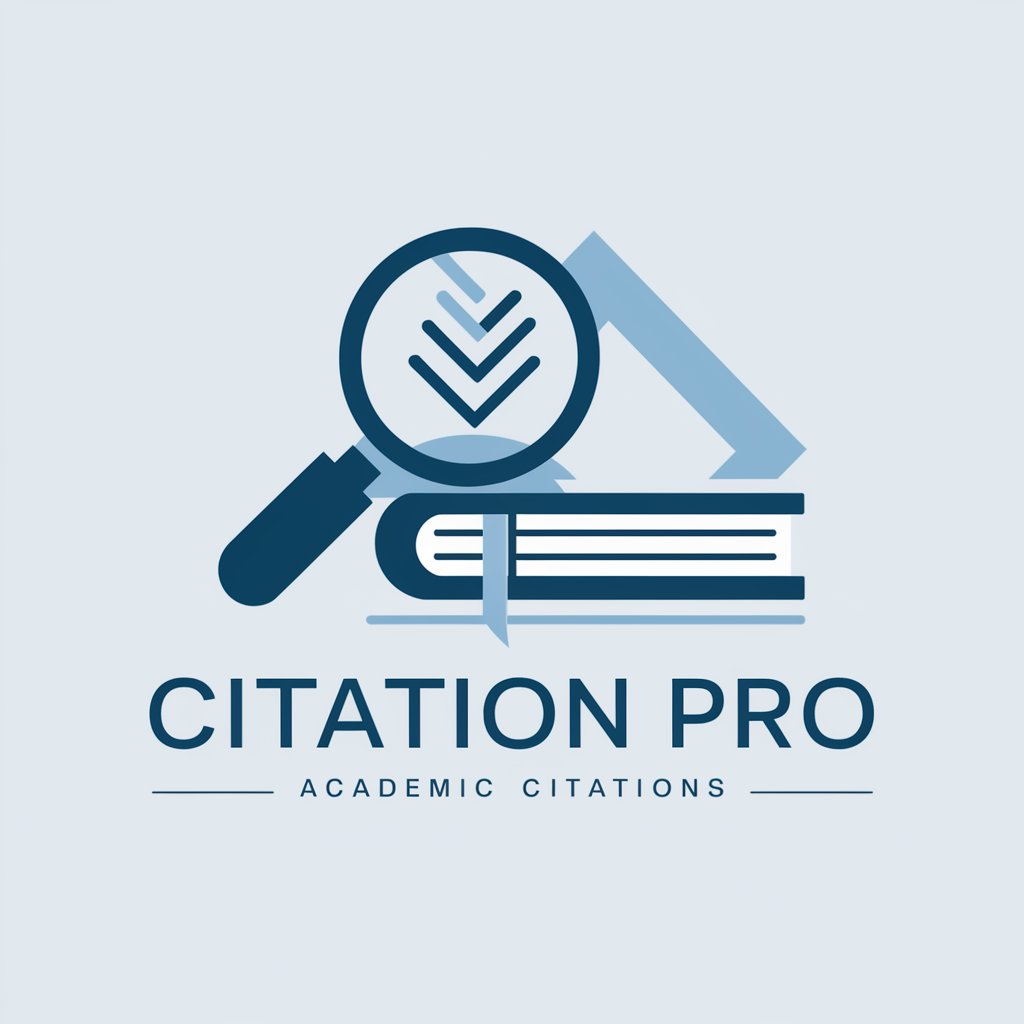
Citation Wizard
Streamline your citations with AI-powered precision
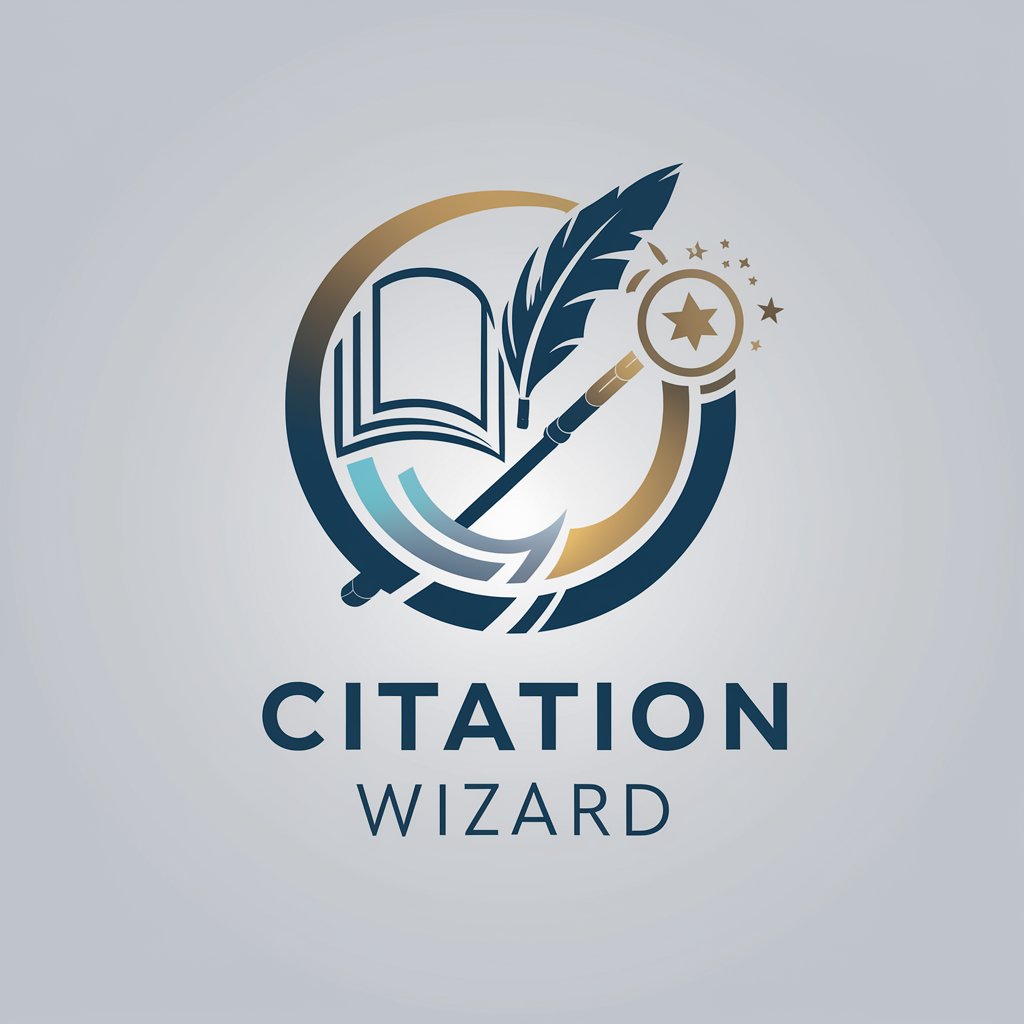
MLA Citation Helper
Streamlining MLA Citations with AI
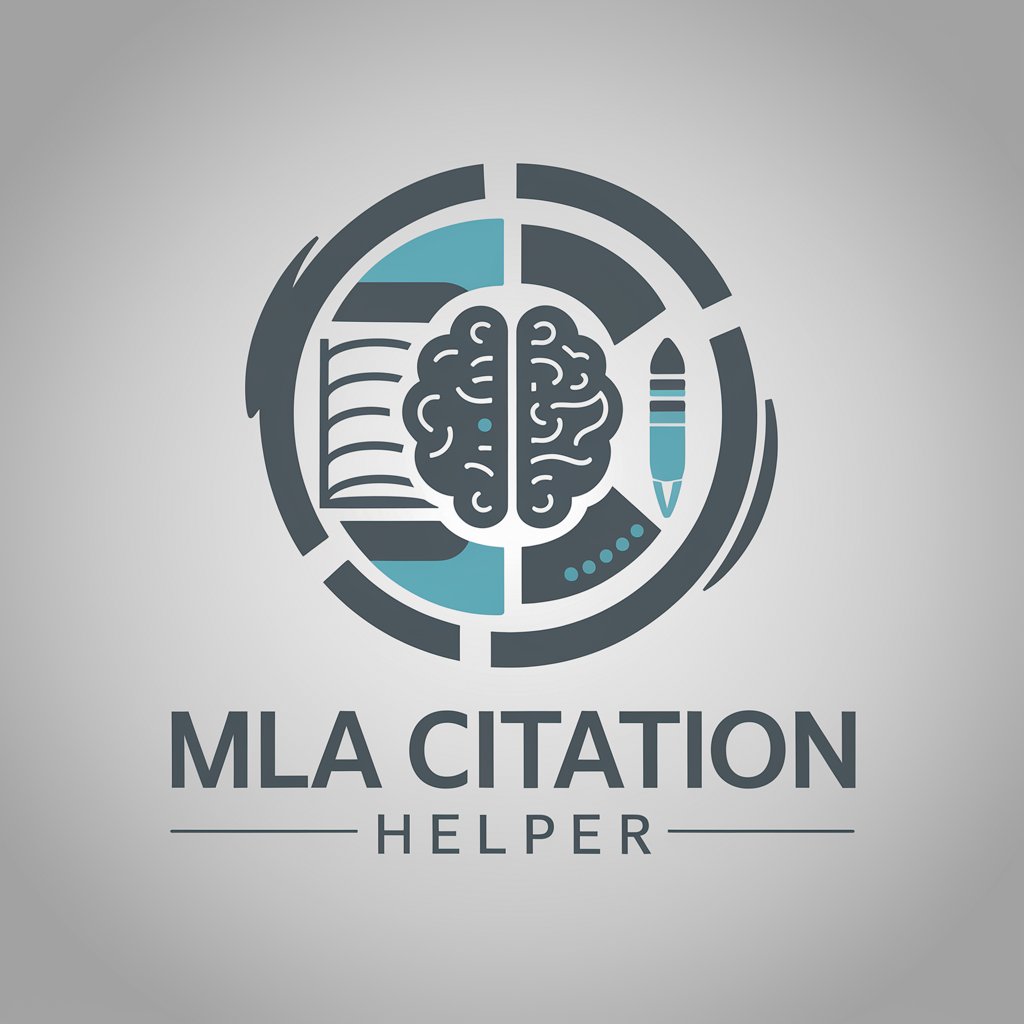
AGI vs AGI
Elevate conversations with AI enlightenment

Presentation assistant (slide creation)
Empower Your Slides with AI

GPTプロンプト マスター 日本語版
Refine your ideas with AI precision.

Global Trade Explorer
Unveiling Global Trade Secrets with AI

FASHION🌟STAR🌟 - Fashion Designer Pro
Craft Your Style with AI-Powered Design

Frequently Asked Questions about Bluebook Citation Assistant
Can the Bluebook Citation Assistant help with non-U.S. legal citations?
While primarily focused on U.S. legal citation formats, the Assistant can provide guidance on the principles of citation that may be applicable to some non-U.S. sources, though specific rules may vary.
Is this tool suitable for both beginners and experienced legal professionals?
Absolutely, the Bluebook Citation Assistant is designed to be user-friendly for beginners while offering the depth and detail required by experienced legal professionals.
How does the Assistant stay updated with the latest Bluebook rules?
The tool is regularly updated to reflect the most current edition of the Bluebook and any amendments to ensure users have access to the latest citation standards.
Can I use this tool for citing sources in academic papers outside of law?
While the Assistant specializes in legal citations, many of the principles and formats can be adapted for academic writing in other disciplines that require rigorous citation methods.
What should I do if I encounter an error or need help with a specific citation?
The Assistant offers troubleshooting tips and guidance for common issues. For more complex queries, it's recommended to consult the detailed Bluebook guide or seek expert advice.
